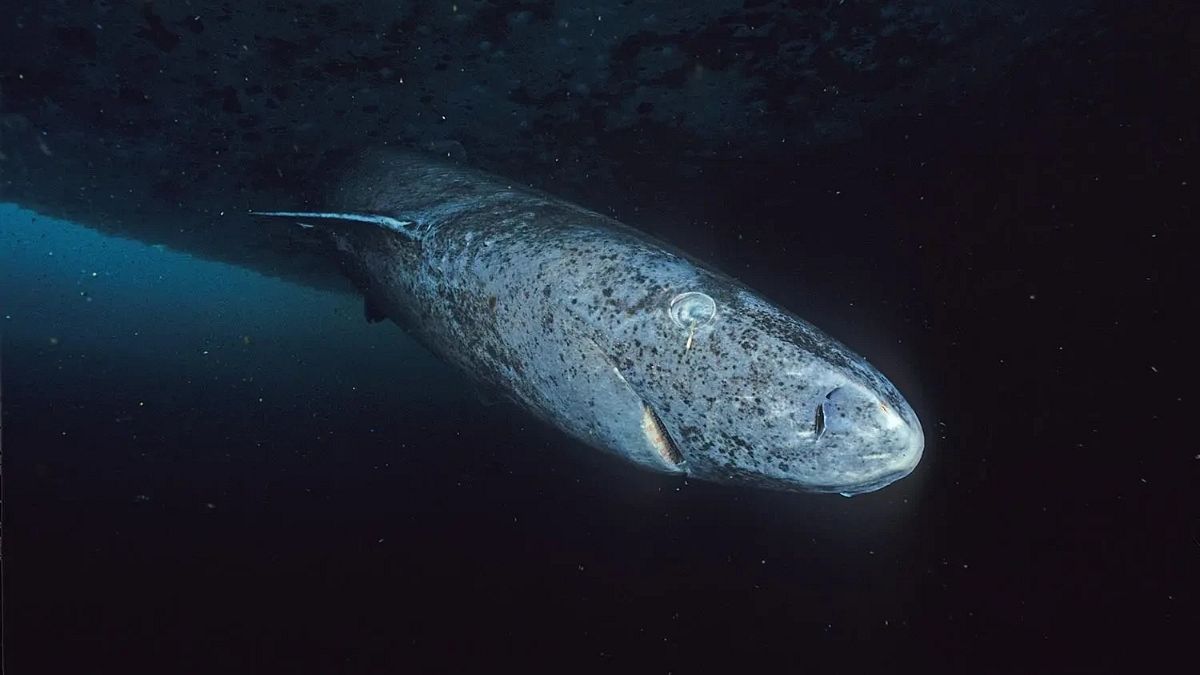The study found that higher ocean temperatures could pose a threat to this unique shark species.
Sharks are known as some of the most powerful – and feared – creatures in our oceans. Now, it’s been revealed that one particular species could teach us how to improve our heart health.
New experimental research presented at the ongoing Society for Experimental Biology conference in Prague shows that muscle metabolic activity may be an important factor in the incredible longevity of the world’s oldest living vertebrate species: the Greenland shark.
Scientists believe the findings could be good news for the conservation of this vulnerable species and for human health.
What sharks can teach us about how to live longer
Greenland sharks, also known as somniosus microcephalus, are the longest-lived vertebrates with an expected lifespan of 270 to 500 years – and longer.
“We want to understand what adaptations they have that allow them to live so long,” says Ewan Camplisson, a PhD candidate at the University of Manchester is working on the investigation, says.
Previously, it was thought that this long lifespan was due to the shark’s cold environment and minimal movement. Now it has been discovered that the factors behind the species’ extreme longevity appear to be much more complex.
That’s why Camplisson and his team decided to investigate alternative theories.
“Most species show variation in their metabolism as they age,” Camplisson explains. “We want to[ed] to determine whether Greenland sharks also exhibit this traditional sign of aging or whether their metabolism remains unchanged over time.”
What tests have researchers performed on Greenland sharks?
To measure the sharks’ metabolism, Camplisson’s research team performed enzyme tests on preserved muscle tissue samples from the creatures.
They measured the metabolic activity of the enzymes using a spectrophotometer, an instrument that measures the intensity of light absorbed after passing through a sample solution, in sharks of different ages and at different ambient temperatures.
After these studies, Camplisson and his team found no significant variation in muscle metabolic activity across different ages. sharks.
This suggests that their metabolism does not decline over time, and may even play an important role in their longevity.
“This is very different from most animals, which tend to show some variation in their metabolic enzyme activity as they age,” says Camplisson. “The results support our hypothesis that the Greenland shark does not show the same traditional signs of aging as other animals.”
How do the findings advance our understanding of the Greenland shark’s health—and our own?
The results of the shark based Research also showed that the metabolic enzymes of the Greenland species were significantly more active at higher temperatures.
“This could indicate that the shark’s red muscle metabolism is not specifically adapted to the polar environment, otherwise we would have expected fewer temperature-related differences in activity,” Camplisson said.
However, with climate change comes a particularly worrying potential trend that could make long-lived species less adaptable and therefore more at risk of extinction. become extinct.
“A female Greenland shark may not reach sexual maturity until she is 150 years old, and with such a long generation time the species has much less opportunity to adapt to human-induced changes in its environment,” Camplisson explains.
Camplisson is not yet finished with his research on Greenland sharks yet.
In the future, he wants to test more enzymes and tissue types to gain more insight into the shark’s metabolic activity, with the effects of climate change in mind.
“My ultimate goal is to protect the species and the best way to do that is to understand them better,” he says.
What do his findings mean for people and in particular for heart disease?
“These are problems that become more common and more severe with age,” he says. “By studying the Greenland shark and its heart, we may be able to better understand our own cardiovascular health.”
